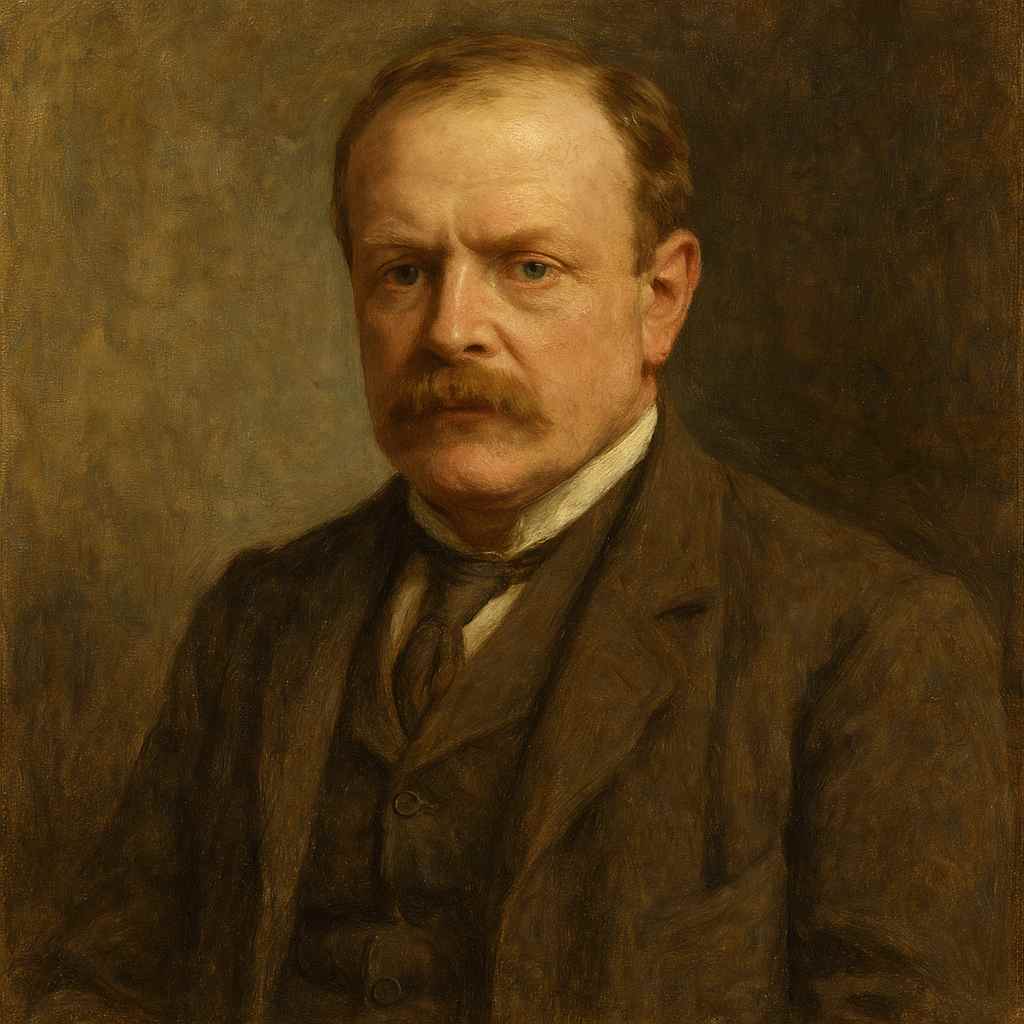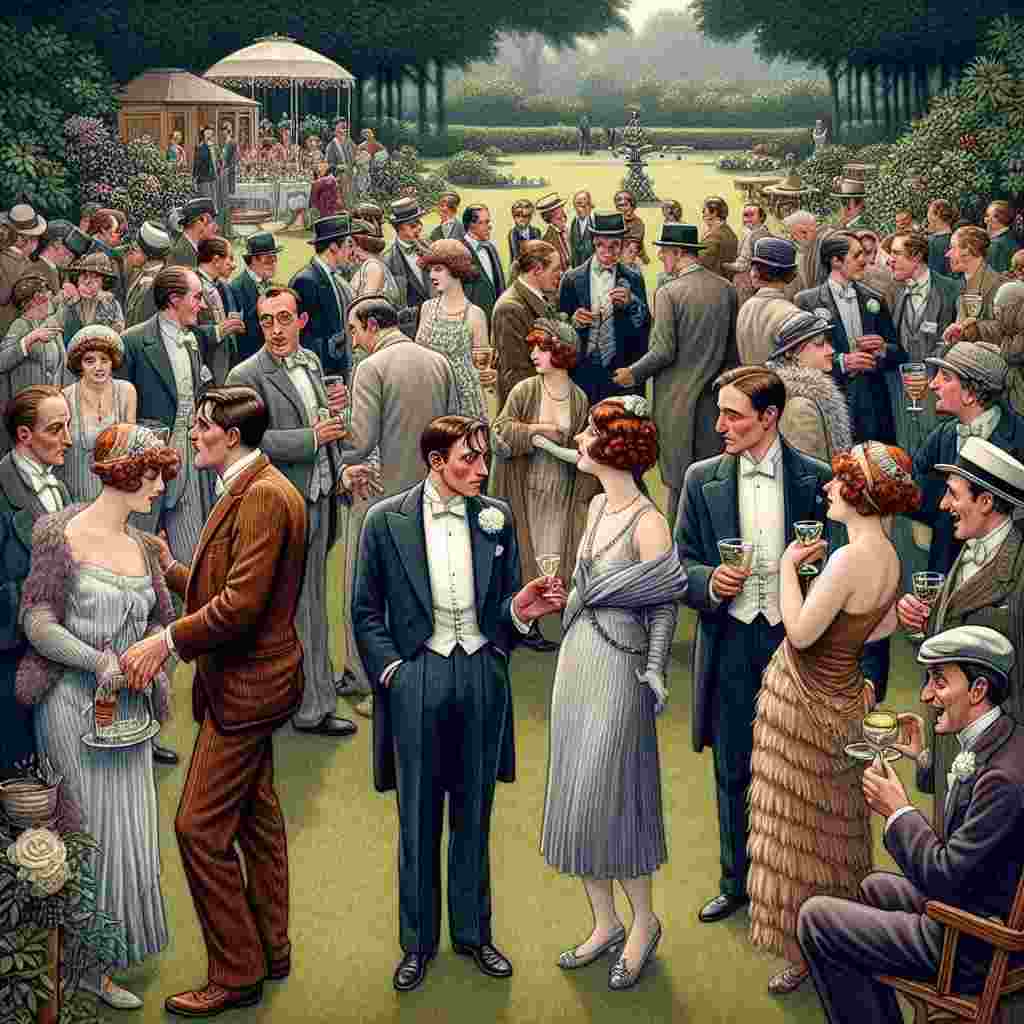2 Poems by Hilaire Belloc
1870 - 1953
Hilaire Belloc Biography
Hilaire Belloc was a prolific Anglo-French writer, orator, poet, satirist, and political activist who left an indelible mark on early 20th-century English literature. Born Joseph Hilaire Pierre René Belloc on July 27, 1870, in La Celle-Saint-Cloud, France, he was the son of a French father and an English mother. This dual heritage would significantly influence his worldview and literary output throughout his life. Belloc's early years were spent in England after his father's death in 1872. He was educated at the Oratory School in Birmingham and later at Balliol College, Oxford,
Hilaire Belloc, born Joseph Hilaire Pierre René Belloc on July 27, 1870, in La Celle-Saint-Cloud, France, was a prolific Anglo-French writer, orator, poet, satirist, and political activist whose influence on English literature and thought in the early 20th century was profound and far-reaching. The son of a French father, Louis Belloc, and an English mother, Elizabeth Rayner Parkes, Belloc's dual heritage would shape his worldview and inform much of his literary output throughout his life.
Belloc's early years were marked by tragedy and transition. His father died when he was just two years old, prompting his mother to move the family to England. This relocation would prove formative for young Hilaire, as he was raised in the Sussex countryside, an area that would feature prominently in his later writings. Despite financial difficulties, Belloc's mother ensured he received a quality education, first at the Oratory School in Birmingham and later at Balliol College, Oxford.
At Oxford, Belloc's intellectual prowess and charismatic personality quickly became apparent. He was elected president of the Oxford Union in 1895, a testament to his oratorical skills and leadership qualities. It was during his university years that Belloc began to hone his literary craft, publishing his first collection of poetry, "Verses and Sonnets," in 1896. This early work, while not his most renowned, showcased the wit, technical skill, and Catholic sensibility that would become hallmarks of his poetic style.
After graduating with first-class honors in History, Belloc briefly served in the French artillery, fulfilling his military service obligations. This experience, coupled with his bicultural background, gave him a unique perspective on European affairs that would later inform his political writings and activism.
Belloc's literary career began in earnest at the turn of the century. His versatility as a writer was remarkable, producing works in various genres including poetry, essays, novels, and children's literature. His poetic output was particularly noteworthy, with collections such as "Sonnets and Verse" (1923) and "Complete Verse" (1954) cementing his reputation as a masterful versifier. Belloc's poetry often combined classical forms with modern sensibilities, addressing themes of faith, nature, and the human condition with both humor and gravitas.
Perhaps his most enduring poetic legacy lies in his humorous verse, particularly his cautionary tales for children. Works like "The Bad Child's Book of Beasts" (1896) and "Cautionary Tales for Children" (1907) delighted readers with their macabre humor and mock-moralistic tone. These poems, often featuring the untimely demises of misbehaving children, showcased Belloc's ability to blend wit, satire, and technical virtuosity in memorable rhyming couplets.
Beyond poetry, Belloc was a prolific essayist and social commentator. His partnership with G.K. Chesterton, another prominent Catholic intellectual of the era, led to the development of "Distributism," an economic philosophy that advocated for the widespread distribution of property ownership as an alternative to both capitalism and socialism. This ideology, rooted in Catholic social teaching, was expounded in works such as "The Servile State" (1912) and "An Essay on the Restoration of Property" (1936).
Belloc's Catholicism was a central aspect of his life and work. His faith informed not only his poetry but also his historical writings, which often sought to challenge what he perceived as anti-Catholic biases in English historiography. Works like "The Path to Rome" (1902), which recounted his pilgrimage from central France to Rome, blended travelogue, spiritual reflection, and cultural commentary, showcasing Belloc's ability to infuse his religious convictions into various literary forms.
As a historian, Belloc was both prolific and controversial. His "revisionist" approach to English history, particularly evident in works like "Europe and the Faith" (1920) and his four-volume "History of England" (1925-1931), aimed to reassess the impact of the Reformation and challenge prevailing Protestant narratives. While these works were often criticized for their polemical tone and perceived bias, they nonetheless demonstrated Belloc's commitment to engaging with historical debates and his skill in crafting compelling historical narratives.
Belloc's political career, though relatively brief, was marked by the same passion and conviction that characterized his writing. He served as a Liberal Party Member of Parliament for Salford South from 1906 to 1910, where he advocated for social reforms and religious education. His outspoken nature and refusal to toe the party line often put him at odds with the political establishment, foreshadowing his later disillusionment with party politics.
Throughout his life, Belloc maintained a prodigious literary output, publishing over 150 books across various genres. His style was characterized by clarity, wit, and a certain combative energy that reflected his personality. Even in his later years, as his health declined, Belloc continued to write and engage in public debates, maintaining his reputation as one of the most formidable intellects of his generation.
Hilaire Belloc passed away on July 16, 1953, just shy of his 83rd birthday, leaving behind a vast and varied literary legacy. His influence on English letters extended far beyond his immediate contemporaries, inspiring subsequent generations of writers, thinkers, and social critics. Belloc's unique blend of faith, intellect, and artistry continues to fascinate scholars and readers alike, ensuring his place in the pantheon of 20th-century literature.
In assessing Belloc's contribution to English literature, one must consider not only his poetic achievements but also his role as a public intellectual who fearlessly engaged with the social, political, and religious issues of his time. His works, whether poetry, prose, or polemics, reflect a mind deeply engaged with the currents of European thought and culture, always striving to articulate a vision of society rooted in his Catholic faith and humanist values.
Ultimately, Hilaire Belloc emerges as a complex and multifaceted figure whose life and work continue to invite analysis and debate. His legacy serves as a testament to the power of literature to shape discourse, challenge orthodoxies, and illuminate the human experience in all its complexity.
where he distinguished himself as a debater and scholar. It was during his time at Oxford that Belloc began to develop his characteristic style, blending wit, erudition, and a staunch Catholic perspective that would become hallmarks of his writing. After graduating from Oxford in 1895, Belloc embarked on a diverse career that encompassed journalism, politics, and literature. He served as a Member of Parliament for Salford South from 1906 to 1910, where he championed distributism, a socioeconomic philosophy that advocated for widespread property ownership. Although his political career was relatively short-lived, it informed much of his subsequent writing on history, economics, and social issues. Belloc's literary output was remarkably varied and prolific. He wrote on an array of subjects, including history, travel, religion, politics, and children's literature. Some of his most famous works include "The Path to Rome" (1902), a travelogue of his pilgrimage from central France to Rome, and "The Servile State" (1912), a critique of both capitalism and socialism. His historical works, such as "Europe and the Faith" (1920) and "How the Reformation Happened" (1928), often presented controversial interpretations colored by his Catholic perspective. As a poet, Belloc is perhaps best remembered for his light verse and cautionary tales for children. "Cautionary Tales for Children" (1907) remains a classic of children's literature, blending humor and morality in a way that appealed to both young readers and adults. His skill with verse extended to more serious subjects as well, and he produced several volumes of poetry throughout his career. Belloc's friendship with G.K. Chesterton was one of the most significant literary partnerships of the early 20th century. The two were often referred to as the "Chesterbelloc," a term coined by their mutual friend, George Bernard Shaw. Together, they championed distributism and Catholic social teaching, influencing a generation of thinkers and writers. Throughout his life, Belloc was known for his strong opinions and combative style. He was a fierce defender of the Catholic faith and often engaged in polemics against what he saw as the errors of Protestantism and modernity. This controversial stance, combined with his prolific output, made him one of the most notable public intellectuals of his time. Belloc's personal life was marked by both joy and tragedy. He married Elodie Hogan in 1896, with whom he had five children. Her death in 1914 was a profound loss that affected him deeply for the rest of his life. Despite this personal sorrow, Belloc continued to write and lecture extensively until his later years. In his twilight years, Belloc's health declined, and he suffered a stroke in 1942 that limited his ability to write. He passed away on July 16, 1953, just shy of his 83rd birthday, leaving behind a vast and varied body of work that continues to be studied and debated today. Hilaire Belloc's legacy is complex and multifaceted. While some of his views have fallen out of favor, his contributions to English literature, particularly in the realm of essay writing and children's verse, remain significant. His incisive wit, command of language, and unique perspective on history and society continue to challenge and inspire readers, cementing his place as one of the most distinctive voices of his era.
This text was generated by AI and is for reference only. Learn more
Username Information
No username is open
Everything is free to use, but donations are always appreciated.
Quick Links
© 2024-2025 R.I.Chalmers (V2Melody).

All music on this site by R.I.Chalmers (V2Melody) is licensed under a Creative Commons Attribution-NonCommercial 4.0 International License.
Attribution Requirement:
When using this music, you must give appropriate credit by including the following statement (or equivalent) wherever the music is used or credited:
"Music by R.I.Chalmers (V2Melody) – https://v2melody.com"
Support My Work:
If you enjoy this music and would like to support future creations, your thanks are always welcome but never required.
Thanks!



